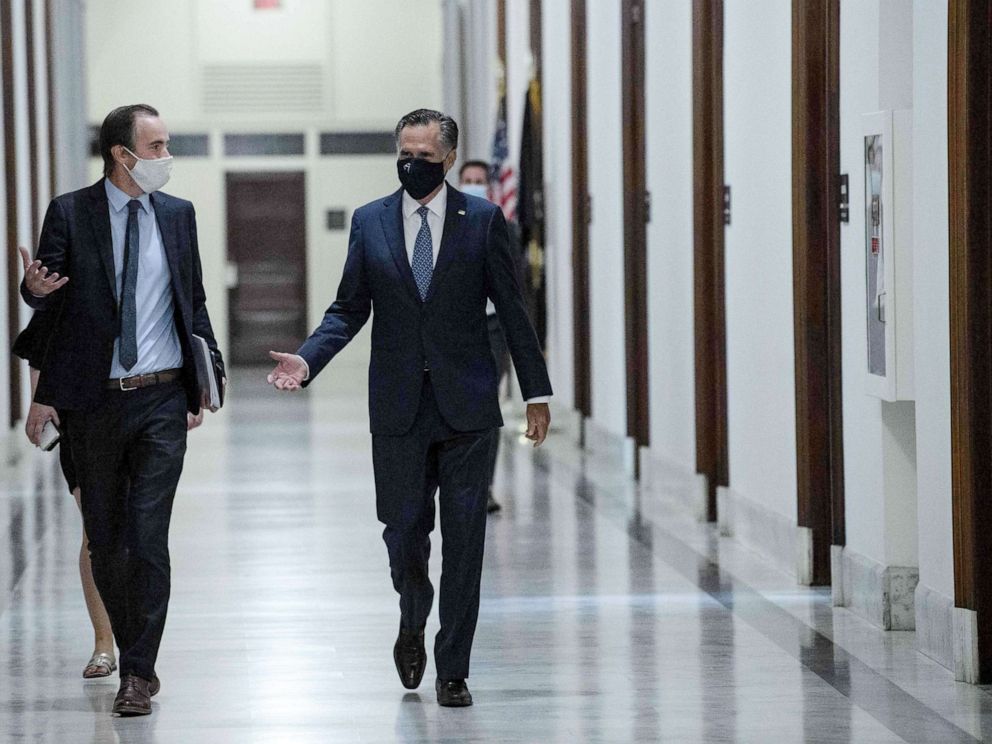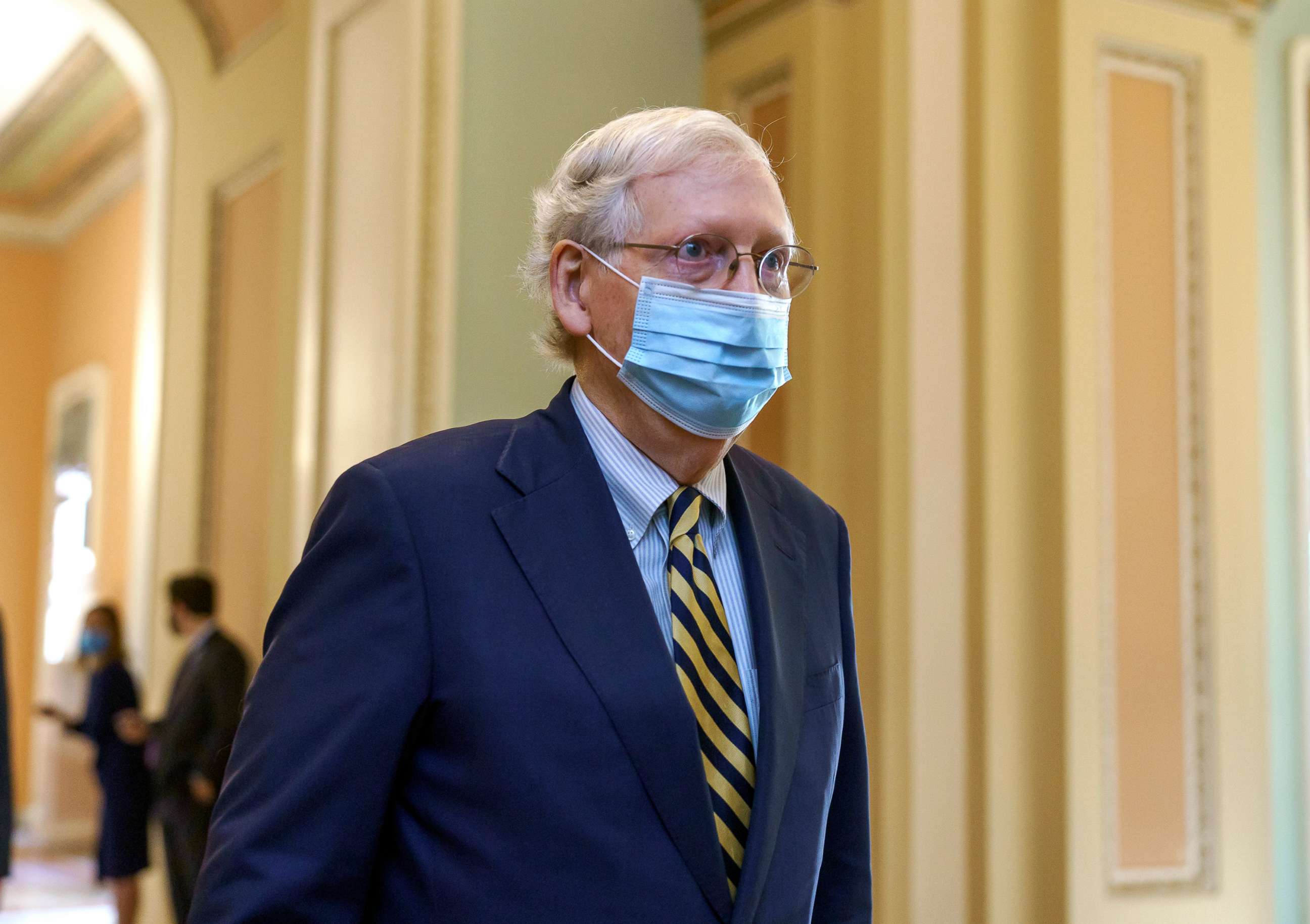Romney supports election-year Senate vote on Trump's Supreme Court nominee
His announcement is a major boost to Mitch McConnell's effort to secure support.
Utah Republican Sen. Mitt Romney, a frequent critic of President Donald Trump, announced Tuesday that he will support a vote on his Supreme Court nominee this year -- which could happen before the Nov. 3 presidential election.

“The Constitution gives the President the power to nominate and the Senate the authority to provide advice and consent on Supreme Court nominees. Accordingly, I intend to follow the Constitution and precedent in considering the President’s nominee. If the nominee reaches the Senate floor, I intend to vote based upon their qualifications,” he said in a statement.
“My decision regarding a Supreme Court nomination is not the result of a subjective test of ‘fairness’ which, like beauty, is in the eye of the beholder. It is based on the immutable fairness of following the law, which in this case is the Constitution and precedent. The historical precedent of election year nominations is that the Senate generally does not confirm an opposing party’s nominee but does confirm a nominee of its own," he said.
Romney's announcement is a major boost to Senate Majority Leader Mitch McConnell's effort to lock down GOP support for a nomination vote over angry Democratic objections.

McConnell can afford to lose three of the 53 Republican senators and still get a nominee confirmed because Vice President Mike Pence would break any tie.
Romney was seen as a possible vulnerability for Republicans being the only GOP senator to vote to convict Trump during his impeachment trial.
But he dashed Democratic hopes he would join GOP Sens. Susan Collins of Maine and Lisa Murkowski of Alaska who have stated they oppose moving forward before the election. They've cited the Republican move in 2016 to block Judge Merrick Garland, President Barack Obama's nominee to fill a Supreme Court vacancy nearly nine months before Election Day, when Republicans then argued it was too close to the election.
Romney said Tuesday that he does not believe moving forward with a nomination now -- with the election just six weeks away -- is inconsistent with the GOP position on the Garland nomination.
When Garland was nominated, Republicans controlled the Senate. Romney, echoing the argument many Republicans have made in recent days, said he believes the circumstances are different now because Republicans have control of both the White House and the Senate.
"I think there's some perception on the part of some writers and others that, 'Gee, what happened with Merrick Garland and some others was unfair.' I don't agree with that," Romney said. "It wasn't unfair because it was consistent with history."
Romney's announcement keeps him in lockstep with McConnell who on Tuesday said "history and precedent were on this Senate majority side in 2016 and they are overwhelmingly on our side now."
Other Republicans are also lining up behind McConnell.
Sen. Shelley Moore Capito of West Virginia also announced Tuesday that she believes President Trump should be allowed to fill the vacancy left by Justice Ruth Bader Ginsburg.
Without at least four Republicans joining their efforts to block the nomination, Democrats have few means to stop McConnell from moving forward.
Minority Leader Chuck Schumer accused Republicans Tuesday of using "brute political force" to push for a quick vote despite laying out a different set of rules in 2016.
"Leader McConnell has defiled the Senate like no one in this generation and Leader McConnell may very well destroy it," Schumer said on the Senate floor. "If leader McConnell presses forward the Republican majority would have stolen two Supreme Court seats four years apart using completely contradictory rationales."
On "This Week" on Sunday, House Speaker Nancy Pelosi on Sunday suggested to ABC Chief Anchor George Stephanopoulos that Democrats were considering all procedural options at their disposal to delay a nominee, not ruling out a new impeachment effort.
"We have our options," Pelosi said. "We have arrows in our quiver that I'm not about to discuss right now but the fact is we have a big challenge in our country."
In days since, some Democrats have signaled they could be open to adding additional justices to the Supreme Court bench if Democrats were to take the Senate majority in November.
McConnell, also on the Senate floor Tuesday, said Democrats are stoking "outrage and hysteria."
"Giving in to political blackmail would not do a thing to secure our institutions," McConnell said. "You do not put a stop to irresponsible hostage taking by making hostage-taking a winning strategy."